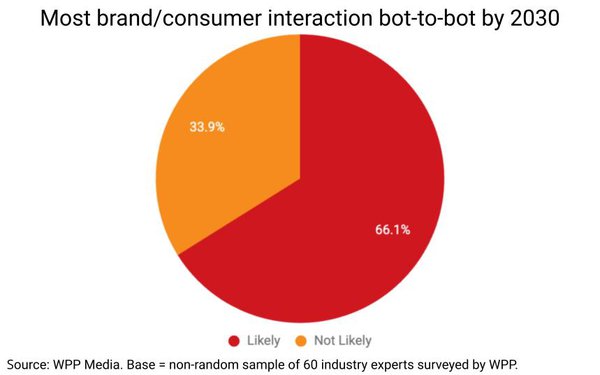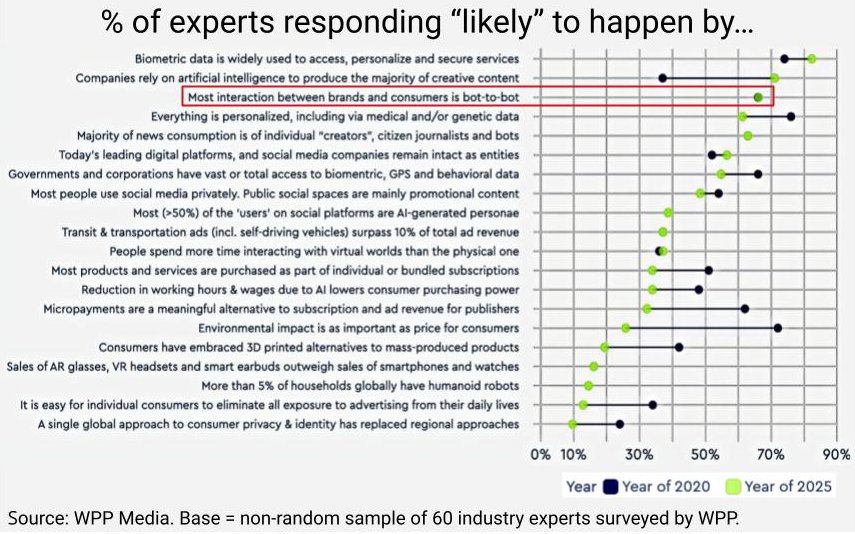
Remember my April 11th column, which focused on my MediaPost Outfront
panel discussion focusing on what the advertising marketplace might look like by the year 2030? Well, WPP Media's Business Intelligence unit more or less ran with it and conducted a survey of 60
industry experts asking them some of the same questions, including my favorite: How likely is it that most interaction between brands and consumers will be bot-to-bot?
According to those
experts, two-thirds believe that is likely, which is twice the percentage of the experts on my panel predicted.
Actually, I asked them a variant of that question, which was what percentage of
their ad budgets would be targeting AI agents in 2030. But it was the same idea.
Anyway, that finding, along with those of a couple of dozen other "2030" questions are included in WPP Media's
just-released mid-year forecast update, though the agency says it plans to follow up with a more in depth release of its 2030 survey later this year.
advertisement
advertisement
I can't wait to report on that when WPP
does.
Meanwhile, the initial findings support the idea that the advertising and media industry already is embracing the concept of agent-to-agent -- or A2A -- marketing.
I think that's
a good thing, and I'd love to know more about the 60 industry experts WPP Media spoke with April 1-30 when it was fielding the survey, because I have to admit, it was high concept for some of the
people on my Outfront panel. But given the rapid adoption of generative AI, the acceleration of AI-based search, the fledgling agentic marketing marketplace, and a bunch of other not-so-sci-fi-ish
developments, I think it's inevitable.
But the truth is, much of ad spending and brand/consumer interaction already has been M2M -- machine-to-machine -- for some time? I mean, isn't that was
search (both paid and organic), as well as most cookie, or identity-based digital media buys have been? The only difference is that the A2A marketplace will be comprised of more intelligent machines.
On both sides of the brand/consumer marketplace.
And that's why I'm confused by the way WPP Media's panel of experts answered a different question about the rising role of AI-based
advertising, which is that it may contribute to a reduction in consumer purchasing power.
Two-thirds of those executives thought that scenario was unlikely, according to WPP Media President of
Business Intelligence Kate Scott-Dawkins.
That means a third think the rise of AI will actually reduce consumer purchasing power.
Either way, I think the reality is the opposite: that
the rise of AI -- especially A2A marketing -- will increase consumer purchasing power, because it will remove a big time friction in the consumer marketing marketplace: information asymmetry.
I mean, while there obviously are pockets of consumer marketing where consumers have the upper-hand in terms of information power, they typically are short-lived and erode rapidly as the marketing
industry figures out ways to game the system and regain marketplace leverage.
So what happens when consumers have access to all the same marketplace information that marketers do and are
represented by intelligent agents working on their behalf? If you ask me, the likelihood is it will increase consumer purchasing power, or at the very least, create a more symmetrical information
marketplace. But I'm not expert. I just report on what they have to say.
